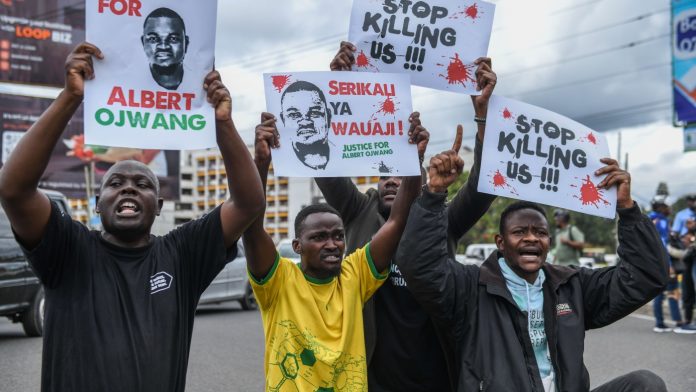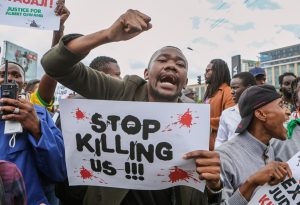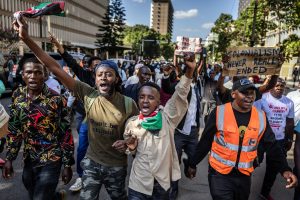
Kenya is experiencing widespread protests after the death of 31-year-old blogger and teacher Albert Ojwang in police custody. Ojwang, known for his anti-corruption commentary, was arrested on June 6 in Homa Bay County for allegedly publishing defamatory content about Deputy Inspector General of Police Eliud Lagat. He was transferred to Nairobi’s Central Police Station, where he was found unconscious in his cell on June 8 and later pronounced dead at Mbagathi Hospital. An autopsy revealed signs of assault, including head injuries and neck compression, contradicting initial police claims of self-inflicted injuries
The incident has sparked protests across Nairobi and other towns, with demonstrators demanding justice and accountability. Protesters have carried signs reading “Stop killing us” and “Where is justice for Albert?” while facing tear gas and water cannons deployed by police . The protests have coincided with parliamentary debates on the national budget, intensifying public scrutiny of the government’s handling of the situation.

In response to the growing outrage, a police constable, James Mukhwana, has been arrested and charged with murder in connection with Ojwang’s death. The court is expected to rule on his detention on June 20. Additionally, five other officers involved in Ojwang’s arrest have been suspended pending further investigation.

President William Ruto has condemned Ojwang’s death as “heartbreaking and unacceptable” and has called for a transparent investigation. The European Union, United States, and United Kingdom have also expressed concern and urged for accountability. Human rights organizations, including Amnesty International and the Kenya National Commission on Human Rights, have demanded justice and highlighted the broader issue of police brutality in the country.
The protests have reignited discussions about the need for police reforms and greater accountability within Kenya’s security forces. Activists and opposition leaders are calling for systemic changes to prevent future incidents of extrajudicial killings and to restore public trust in law enforcement.
As the situation develops, the Nation remains on edge, with citizens and international observers closely monitoring the government’s response and the pursuit of justice for Albert Ojwang.

